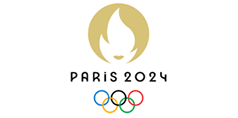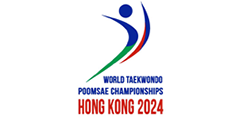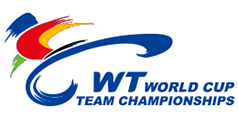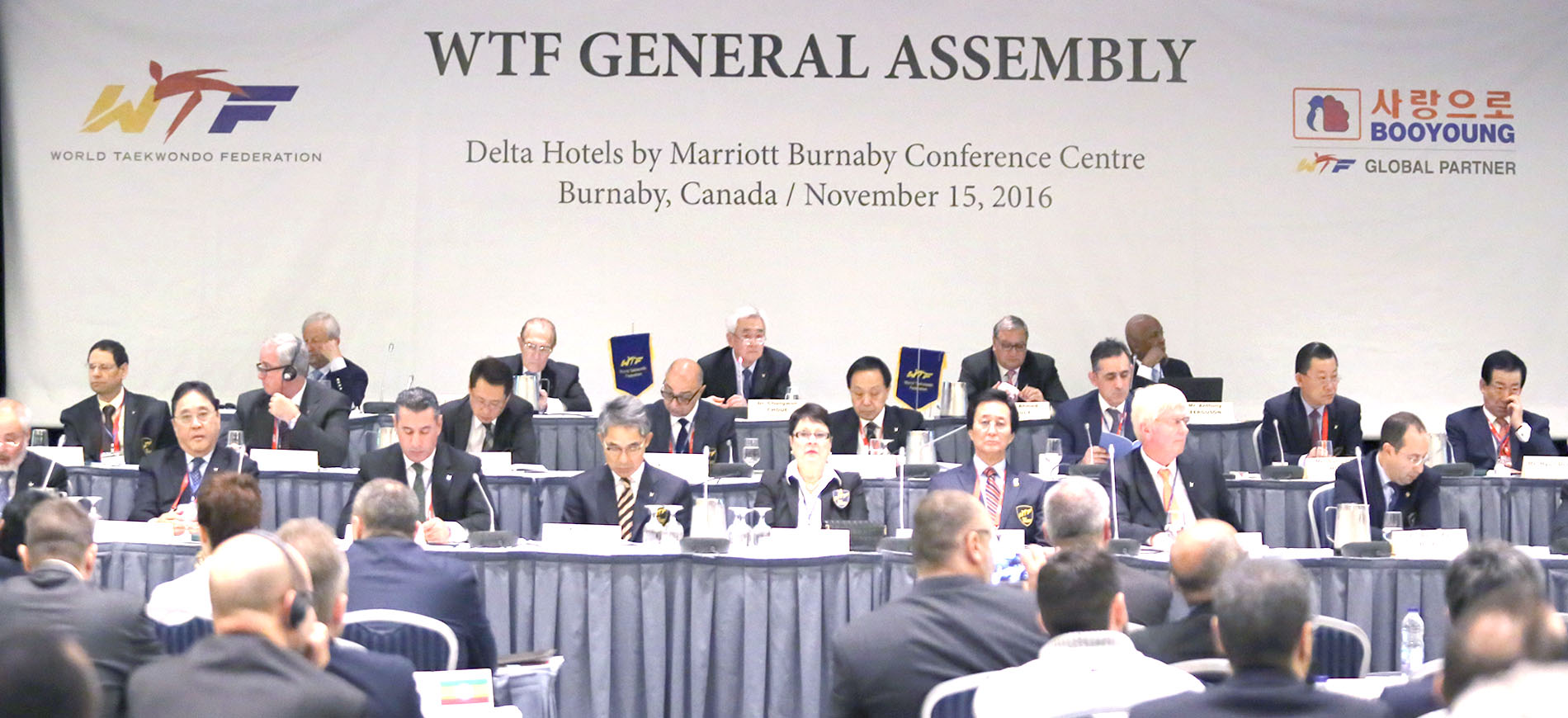BURNABY, Canada (Nov. 15, 2016) New competition rules for taekwondo kyorugi were proposed to and accepted by the WTF’s 27th General Assembly, held at the Delta Hotel Burnaby Conference Center.
Speaking at the WTF Council meeting the day previously, WTF President Chungwon Choue had said that now that taekwondo has proven that it is “fair and transparent,” it is time to upgrade the sport so that it “dazzles and excites.”
Proposed changes to WTF Competition Rules and Interpretations were presented by WTF Director General Jin-bang Yang. He explained that there had been an exhaustive consultative process. In October, some 30 elite coaches from around the world had discussed rule changes with each other, as well as with the heads of the Technical and Development Committee, Coaches Committee and Referee Committee, and with the WTF Council.
Yang noted that while taekwondo at the Rio 2016 Olympic Games had been widely praised by the general public, the media and the sports community, many members of the global taekwondo family had complained. Their complaints largely focused on the over-use of front-leg kicks and PSS functionality.
He broke down four key issues that the rule changes address. Firstly, taekwondo needs more action, so must encourage offensive players. Secondly, there are currently too many stoppages, mid-game. Thirdly, the introduction of the PSS and IVR have improved officiating - but even so, officiating needs to be improved further. Lastly, taekwondo needs to be easier for the general public and TV viewers to understand.
In terms of point allocations, an extra point was proposed for kicks to the body, from one to two points. This, it is hoped, will encourage active attacks. Moreover, matches are currently ended if there is a 12-point gap between players; it was proposed this be changed to 20-point gaps (to accommodate the extra points for body kicks). However, it was proposed that stoppages on point gaps be prohibited in semi- and final matches, if OCs wish.
It was proposed that the kyong-go (minus half-point) penalty be eradicated, leaving only gam-jeom (minus one point). This proposal is designed to make up for the extra points for body kicks, and to simplify penalties. Ten gam-jeoms will result in loss by penalty.
Wider sanctions were proposed for various front leg actions, such as leg blocks, kicking the opponent’s kicks, and below-the-belt cut kicks. These proposals are designed to favor attacking tactics and offensive players.
To make the game more continuous, it was proposed that automatic penalties be removed for pushing - so allowing players to push and kick, thereby encouraging combination attacks. Those pushed will - if they fall to the ground - suffer a penalty. (This, it is hoped, will encourage athletic balance). However, pushing an opponent over the boundary, or pushing an opponent while he/she is kicking, remain sanctioned.
It was proposed that the “golden point” round be reduced from two minutes to one.
And to simplify the game, it was proposed that coaches no longer be allowed to appeal video replays for face kicks. Moreover, it was proposed that there be an increase in video quotas: One quota will be given per coach, per match.
All the proposals presented were approved by the General Assembly.
The new rules will be tentatively applied from January 2017; full application will become effective at the World Championships in Muju in June of that year. The newly revised rules will be posted on the WTF website in due course.








































